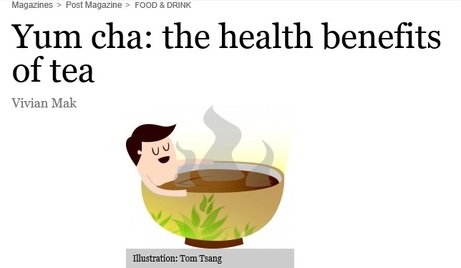How healthy is tea?
|
Tea has been associated with medicinal and health benefits since its discovery. In ancient books, 24 distinct benefits are attributed to it: tea is said to revivify and energise, calm, improve eyesight, quench thirst, cool internal and external heat from the body, detoxify, degrease, improve intestinal movements, act as a diuretic, reduce mucus, remove air/gas from the body, strengthen the bones, energise and increase longevity. The list goes on …
It seems tea can do everything. But what exactly are we consuming that produces such effects? Polyphenols are naturally occurring biochemicals that are found mostly in plants, including tea. Of all the polyphenols, flavonoids are the most powerful antioxidants and are supposed to preserve youth. Catechins, especially EGCG (Epigallocatechin 3-gallate), are said to be the most potent health-contributing flavonoids in tea. Green teas have relatively large amounts of EGCG. Caffeine, an alkaloid that is odourless and slightly bitter, occurs naturally in tea. It helps increase alertness, strengthens the heart, relaxes bronchial muscles and decreases the risk of heart and liver diseases. It also stimulates metabolism and is a diuretic. However, overconsumption will lead to headaches, restlessness, insomnia and anxiety. Those sensitive to it can remove much of the caffeine in tea by blanching or rinsing the leaves, as it is highly soluble in hot water. Aromas and fragrances produced by essential oils in tea are energising at first and then calming and tranquilising. Inhaling the aroma of tea before sipping it is actually a kind of aromatherapy. Jasmine-scented green tea or Phoenix oolong teas are great for this. |
Theanine is an amino acid found in tea. Studies have found that it has the potential to reduce mental and physical stress, boost mood and improve concentration. Unlike caffeine, high doses of theanine will not have many side effects. Oolongs contain both caffeine and theanine, which both energise and relax you at the same time.
I enjoy a nice cup of oolong while I work, as it boosts production while relieving any tension. Vitamin A, or beta-carotene, protects cells from ageing and enhances vision. Vitamin B boosts antibody production, helping to fight diseases, and supplies the cells with energy. Vitamin C, found in especially high levels in green tea, helps to strengthen the immune system and protect the digestive system against bacterial infections. However, it is easily destroyed by heat and light. That explains why we normally brew green tea at a lower temperature (70 degrees Celsius to 80 degrees Celsius). Vitamins D and E help strengthen bones and slow down oxidation, respectively. Ultimately, when discussing all the health-giving benefits of tea, one should never isolate one component over another. After all, tea drinking should be an enjoyable experience, with all the elements working together in harmony to keep your body healthy. http://www.scmp.com/magazines/post-magazine/article/1372795/yum-cha-health-benefits-tea |

